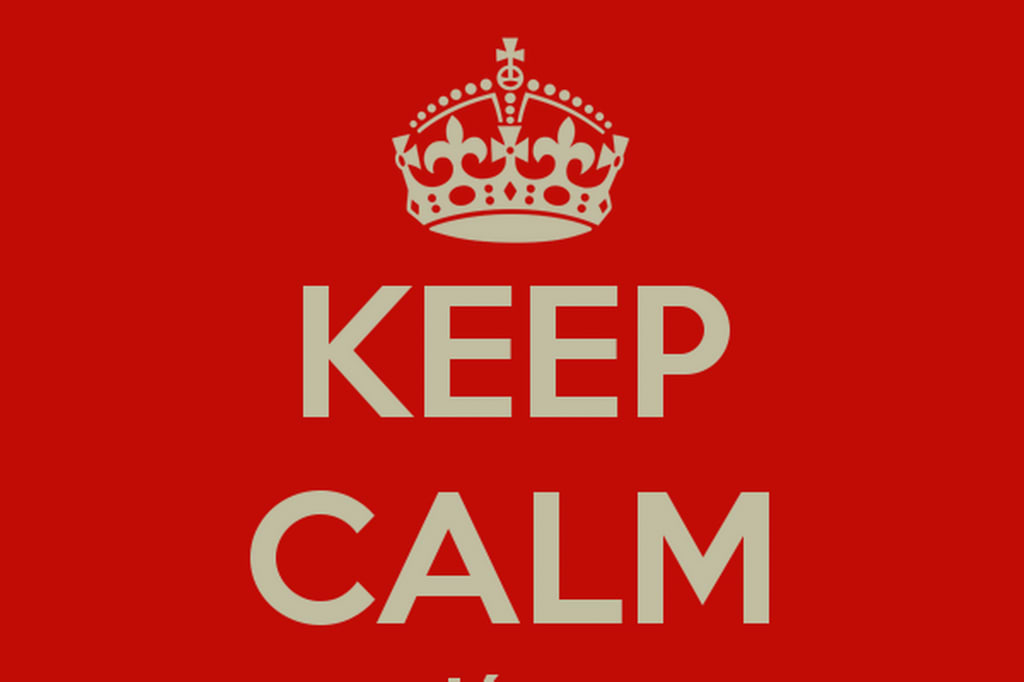
Ah man, I’m running late for work because I dripped toothpaste on my shirt and had to change, I left my wallet in my other jacket and now it’s raining and my umbrella is … well, who knows where umbrellas go? This is a pretty regular Monday morning for a lot of us.
Did I plan for any of these things to happen? No.
Was I surprised? No.
Did I lose my shit? No.
Did I just tackle each as it came along and figure out a way around or through the problem? Yes.
We all deal with unexpected obstacles pretty much constantly. We don’t go batty, we don’t gibber and we don’t fall apart.
Can you for one moment imagine putting on some shoes right now, stepping out the front door and going to rescue someone from a burning building? Or being handed a semi-automatic rifle and having to defend a particular street corner for an indeterminate length of time, or being shot into space and while you’re up there the communication system stops working? How would you cope?
There are professions where the random obstacles that are thrown up daily are sometimes matters of life and death. But mentally, to those people it is just a job, like if my spreadsheet crashes before it was saved (thanks Microsoft Excel*). I’m talking about professions like the Emergency Services, Special Forces and Astronauts.
What would you do in these situations? These jobs are something that are probably currently what I consider to be beyond my limit to cope and if thrust into them I would exhibit more than a little bit of panic.
Panic (pan-ik)
noun
1. a sudden overwhelming fear, with or without cause, that produces hysterical or irrational behaviour, and that often spreads quickly through a group of people or animals.
2. an instance, outbreak, or period of such fear.
Let’s be clear on this: Panic is a killer. When a life or death decision needs to be made, hysterical and irrational behaviour are not your friends.
We’ve all experienced it but let’s look at some of the symptoms of panic:
- rapid heart beat
- breathlessness
- shaking
- dizziness
- sweating
and the general feeling that your heart is about to pack it all in and explode
On the face of it none of these seem particularly useful, although of course they are, from a physiological perspective. It’s our age-old fight or flight response that occurs in response to a perceived harmful event, attack, or threat to survival. But also of course, it’s such a strong response that it doesn’t have much of a gradient so the response is often disproportionate to the threat. Like with everything else if you have enough practice you can learn to master this response and only let it take irresponsible control when you really are being chased by a sabre-toothed tiger.
When people panic and are in the grips of the fight-or-flight response, effective decision making is thrown out of the window and replaced by immediate reaction. They make mistakes. They disregard procedures, ignore rules and override systems. They deviate from a set plan. They become unresponsive and stop thinking clearly.
Before the first men were shot into space, they were trained in one skill more than in any other: not panicking. NASA recognised that the key ways to fight panic are to be familiar and to have a feeling of control. By gradually exposing astronauts to an eventual full replication of launch day by the time they got to the real thing it felt as natural as it could¹. They knew what was happening, what their part was and if things went awry what should be happening and that feeling of control helped to increase the panic threshold and increase confidence and help them to make much better decisions if things were to go off plan. Of course we are all familiar with the concept of practicing something before doing it for real and it does help to keep the panic at bay, doesn't it?
But what if the challenge we face takes an unexpected twist or seems so immense that we can't envision how we will succeed at it?
“The person who removes a mountain begins by carrying away small stones.” – Chinese proverb (refactored for c.21)
“The secret of getting ahead is getting started. The secret of getting started is breaking complex overwhelming tasks into small manageable tasks and then starting on the first one.” – Mark Twain
The key to overcoming a big challenge is to start with small achievable steps. Each success brings a return of confidence. It's a method employed by people who have endured real-life survival situations (whether by design or not). If you have to walk 10 miles start by walking 100m to the nearest tree/rock/dune top. Assuming anything but horrendous injury most of us can manage to walk 100m. Do that 16 times and you have walked one mile. That actually starts to sound pretty easy doesn’t it? Do that ten times and you have walked 10 miles. But you have really only challenged yourself to walk 100m a lot of times. By the time you have walked a few 100m sections I bet you will have developed some kind of game, counting system or something else that actually makes it seem like less of a life/death challenge and more of a competition.
“It is a mistake to try to look too far ahead. The chain of destiny can only be grasped one link at a time.” – Winston Churchill
So practice, familiarity and a feeling of control help inhibit panic. We all know this from moving to a new town, new school, new job, new car. The more you do it the easier it is. Recognise things for what they are and know that familiarity will grow (nb. familiarity breeds complacency which is to be avoided. Perhaps I’ll write about that at another point in time). Another tactic is to break things into bitesize pieces. Also something we already know.
What else can we do to help ourselves?
Picture whichever one of these scenarios you have experienced most closely in the past:
- Taking a penalty in a soccer match, or a final dive/shot/sprint/jump to win.
- Sitting an exam that you know you are not fully prepared for.
- Going into an interview or work meeting that is likely to be tough.
- Preparing to lift something that is slightly too heavy to be comfortable.
Surely you have experienced one or more of these, or have been in a similar situation.
Imagine it right now, being in that situation. A split second before, what do you do?
If you are anything like me, you breathe out slowly. You centre yourself. You focus minutely on what is about to happen. You push aside all those feelings of pressure and panic which are building and then you move forwards.
But that’s it, we did it. We controlled that response. And the key? Controlled breathing.
People don’t say “so I took a deep breath and …” for no reason. It’s a millennia-old method, physiologically and psychologically proven to slow the fight-or-flight response.
Controlled breathing is a method taught and employed by the military special forces, from special ops to bomb-defusal specialists and they are so trained in it that when they encounter the situation they have been trained for their heart rate and breathing rate drops to below their resting base rate². It shows that the human mind can be trained to adapt to stress and it’s a valuable lesson.
By combining the powerful tools of shackling our panic, breaking complex tasks into small steps and controlling our breathing we have made a vast leap to getting through any situation, a life-or-death one or a daily one: no matter the stress if we can implement these simple tools we can slow down or inhibit completely that acceleration to fight-or-flight response, we can make better decisions, take the better course of action and ultimately get through our ordeal no matter how big or small.
*Other spreadsheet programs are available**
** and they don’t crash as often. Allegedly.
Credits:
1 The Obstacle is the Way, Ryan Holiday
2 The Wisdom of Psychopaths, Kevin Dutton
About the Creator
Ben
Itinerant blogger gets easily fascinated by new topics ... but I have a soft spot for sci fi and avidly follow real world developments in space tech.






Comments
There are no comments for this story
Be the first to respond and start the conversation.